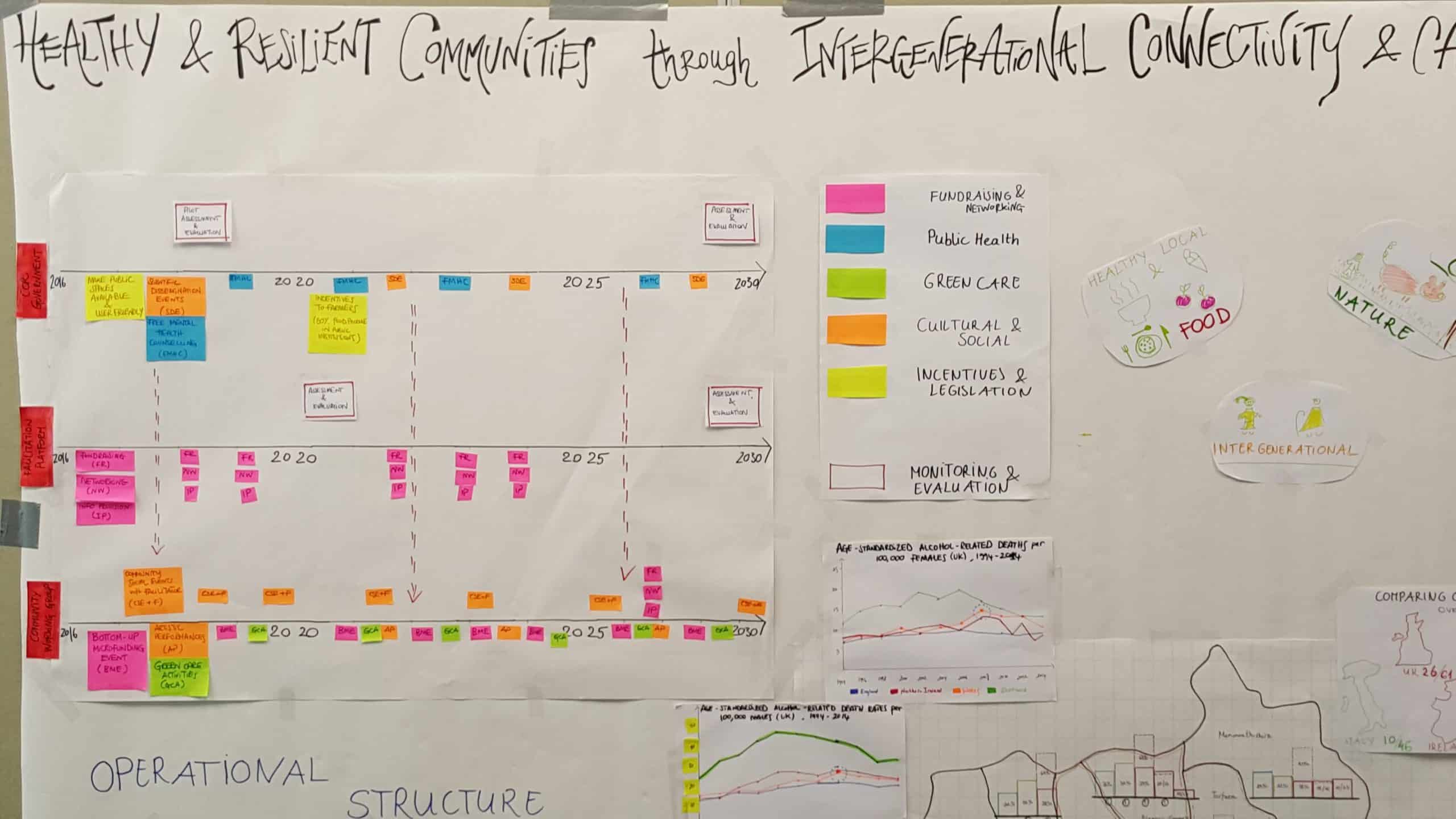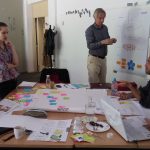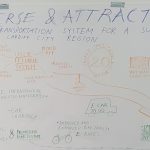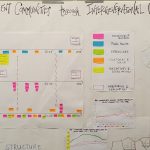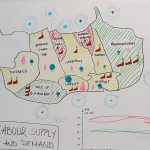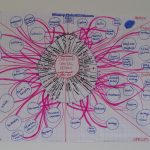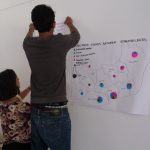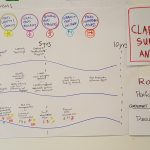What strategies can we develop to improve the sustainability of the Cardiff Capital Region? This was the challenge we addressed during the 3-day training in Integrated Sustainability offered by SUSPLACE partner Except in May 2016. Applying the Symbiosis in Development (SiD) framework developed by Except, we worked in teams to define strategies for four different topics defined by the Welsh Government: 1) Governance and leadership, 2) Social and economic inclusion, 3) Health and well-being, and 4) Sustainable transport.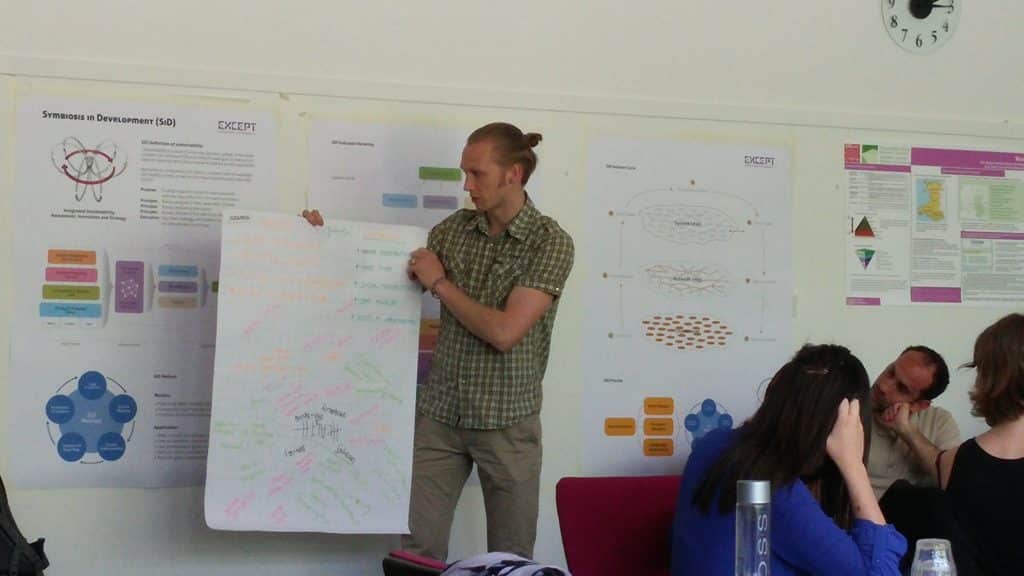
Wales, as other places in the world, faces a number of complex long-term challenges, such as climate change, poverty, health inequalities, unemployment and growth. To tackle these issues, Wales created the Well-being of Future Generations Bill in which the Welsh Government reinforces its commitment to sustainable development. The Cardiff Capital Region is the largest city-region in Wales and accounts for 50% of the total economic output of the Welsh economy. During the training we tried to develop strategies to improve the sustainability of the region as a whole, using SiD as a framework. The Welsh Government and Cardiff University provided background information, policy documents, questions as well as a film to provide the ESR with input for the training.
What is SiD? The training started with an introduction to the SiD-framework by trainers Tom Bosschaert, Damon Taylor and Michiel van der Vight. Key to SiD is moving away from an object-oriented approach to sustainability and replacing it with a systems approach that addresses sustainability in its full complexity. It differentiates between the object-level (physical assets such as trees and people), the network-level (social, biological, economic relations) and the systems-level. Sustainability cannot be applied to an object, but is considered as the state of a complex dynamic system. To experience systems dynamics we did a nice physical exercise on networking on the 3rd day, experiencing how systems continuously change by the movement of its components.
After the introduction, we worked on setting goals for each case. We learnt to differentiate between goals on the systems level, that are generally less specific or ‘smart’, and goals on the object-level (or ‘indicators’) that are more specific and ‘smart’. We then worked on developing sets of system maps for each case to analyse the current situation and the stakeholders involved. In the transport team we developed a map of the current transportation system identifying weak spots in the systems. In addition, we created user journey maps, zooming into user experiences and trying to understand transport needs from the bottom-up. On the second day we worked on improving the maps and using the maps to define interventions.
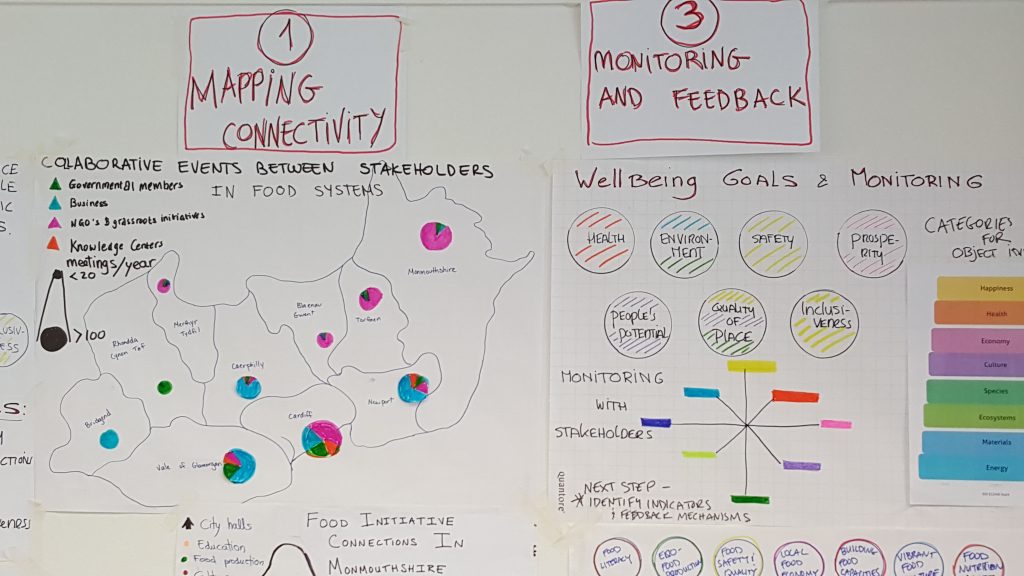
The leadership group suggested to create governance structures based on process goals: 1) connectivity and inclusivity 2) alignment of goals and actions 3) engagement of Welsh governance 4) Transparancy and responsiveness. We used the issue of food as a vehicle to map and visualize governance interventions, thus mapping the connectivity between food actors in sub-regions, operationalizing food governance goals, and showing how the process can be monitored using specific indicators. The group exercise resulted in suggestions how Welsh Governance can lead by example, engage in institutional arrangements in food and take concrete actions.
On the last day of the training the goals were revisited and the intervention strategies refined. All information was presented on posters, in order to inform the Welsh Government on the outcomes. Unfortunately during the presentations, the skype connection failed, but all presentations were recorded.
Some inspiring examples of solutions: a spider diagram for monitoring governance, connecting generations for health and a subjective user experience perspective to develop transport solutions, starting with ‘soft’ changes, followed up with strategic investments in (new) infrastructures.
We thank Matthew Quinn, Usha Ladwa-Thomas, Abid Mehmood, Terry Marsden, Alex Franklin and others who provided us with relevant information, the trainers of Except for their guidance and all ESR for their active involvement and cooperation in this training.

